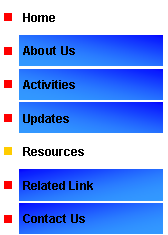

|
At UpsideofDown parents and carers come together to support each other. Many parents have acquired a lot of experiences both positive and negative. They are willing to share amongst each other. During our parents meetings books, literatures, videos on both down syndromes and other disability issues will be made available. A list of items will be published on a regular basis. |
|
Downs Syndrome the first 18 months
by Will Schermerhorn
is a valuable video made by this parent who travel the world meeting both other parents and professionals. Very good and informative. Available for viewing during our information session or workshop. 2 new DVD has been produced by Will and must be purchased directly from the company DISCOVERY Pathways to Better Speech
WHAT DID YOU SAY? http://www.blueberryshoes.com/ http://www.downsyndromefilms.com/ The above Websites are very informative and contain some video clips. |

EDUCATION INFORMATION AND ADVICEStatements of special educational needsMost parents believe statements are essential to ensure the educational help their children need, especially speech therapy. One member commented that there is a lot of initial hassle, but if you get it right at the beginning, it helps for the whole of your child's school career. First, get the DSA booklet on statementing which is downloadable from:
The DSA helpline has expert educational advice available:
The first thing you have to do to get a statement is request what is called 'statutory assessment' -- statutory because it is governed by law, including legal limits on how long LEAs take to do it.. The DSA advises, 'To allow time for negotiation on the contents of the Statement and a possible appeal to the Special Educational Needs and Disability Tribunal if agreement cannot be reached, the assessment needs to be started about a year before the Statement needs to be in place.' If refused assessment, or a statement, or if you disagree with the final statement, you can appeal to the independent national Tribunal. Requesting statutory assessment: resourcesInformation and model letter on requesting assessment:
Longer booklet on requesting assessment -- 'Asking for Statutory Assessment':
Preparing your own evidenceDuring assessment, the LEA will be getting reports from an educational psychologist, school or nursery staff, NHS staff who know your child, and others e.g. a speech and language therapist, and occupational and physiotherapists. If you know anyone else who should contribute, you should let the LEA know. If you have had your own assessments done, submit your own reports. If your child has any special difficulties, make sure the LEA knows about them, as well as your views on what help she needs and where she should go to school. Visit schools or early years settings to make sure you know what's on offer and can make an informed choice.
What to do when the draft statement arrivesThis is a stage you need to read up about. If you are unhappy with any aspect of the draft statement, see information and model letter at:
http://www.ipsea.org.uk/sevenfixes.htm#AskingforMeeting
Longer advice at:
http://www.ace-ed.org.uk/publications/shop/GettingStatementRight.html
And a highly recommended parent-friendly guide on debugging the draft at:
http://www.afasic.org.uk/pdf/Proposed%20Statement.pdf
If you want a mainstream school and the LEA wants to name a special school, get the Government's own guidance to see the very limited circumstances in which the LEA can refuse your preference: 'Inclusive Schooling - Children with Special Educational Needs' ref. 0774/2001, also free from DfES publications on 0845 602 2260, and downloadable from:
http://www.teachernet.gov.uk/docbank/index.cfm?id=4621
Objecting to the final statementIf after all your efforts the LEA has issued a statement you disagree with, you have the legal right to appeal to the independent Tribunal. Help available from the DSA and IPSEA, as above.
The above is an excerpt from the following website: http://www.43green.freeserve.co.uk/uk_downs_syndrome/ukdsinfo.html
Visit the above website for more info or contact your local support group.
|
|
Victoria' Day "This is a beautifully presented little book which will be welcome on the shelves and coffee tables of homes and schools. A charming observation of a child who "just happens to have Down's syndrome". A useful tool to aid inclusion and promote understanding". Bob Black. Published by Frances Lincoln Children's Books Available at Waterstones, with a donation facility to DownEd Trust
Also available on Amazon.com
The above was taken from the following website: |
|
Researchers Pinpoint Critical Down Syndrome Gene Author: Karen Barrow Medically Reviewed On: September 01, 2006 The first strides have been made in trying to better understand Down syndrome, along with the hopes of finding ways to help those born with it. Down syndrome, also referred to as trisomy 21, is caused by a genetic abnormality that results in a person being born with three copies of chromosome 21 or an extra piece of this chromosome, instead of the usual two. However, it was never known how this extra chromosome works in the body to cause the symptoms of the syndrome. Now, researchers have determined what seems to be one impact that this extra chromosome has on the body. Much research on Down syndrome has focused on chromosome 21 as a whole, but Dr. Ahmad Salehi and colleagues from the department of neurology and neurological sciences at Stanford Medical School, looked at the particular impact of having extra copies of one gene that is found on this chromosome. "In this sense, instead of targeting Down syndrome as a whole, we can start with the most disabling features of Down," said Salehi, who cited the slow mental decline that is characteristic of the disease. Down syndrome occurs in one in every 733 live births in the United States and the risk of having a child with the disorder increases with the mother's age. Down syndrome causes several distinct physical abnormalities as well mild-to-moderate mental retardation, which can make socialization and education a bit of a challenge, but still manageable. Over the course of time, however, many people with Down syndrome go on to develop dementia, which closely resembles early-onset Alzheimer's disease. It is this symptom of Down syndrome that was the focus of Salehi's study. In the study, published in Neuron, researchers looked at mice with Down syndrome and found that each had three copies of a particular gene, called App. These mice also had a neurological problem that caused a decrease in their ability to transport a particular protein needed for the survival of some neurons important in learning and memory. It is believed that this neurological problem is caused by the extra App gene and, ultimately, causes some neurons to shrink, leading to the dementia that affects people with Down syndrome. In fact, previous research has linked a mutation in the App gene to early-onset Alzheimer's disease as well. "Mutations in the App gene generally lead to a form of early onset Alzheimer's disease," said Salehi. With this new information about how the App gene affects the cells, Salehi suggests that it may be possible to find the mechanism by which App causes neurological damage. Then, a treatment may be developed to target this process and either slow down or stop this cognitive decline in people with Down syndrome. http://rileyhospital.healthology.com/mental-health/article3805.htm
Courtesy Riley Children Hospital |

